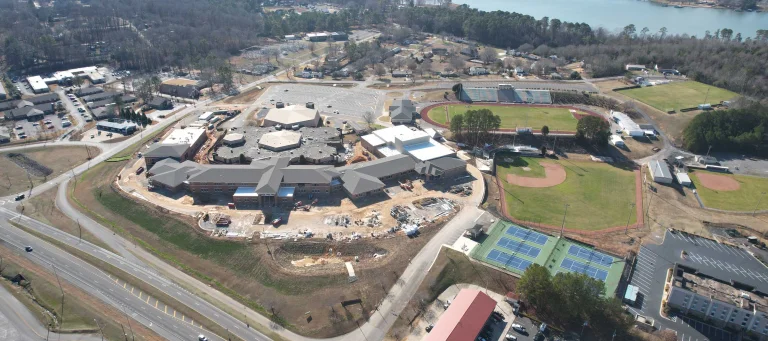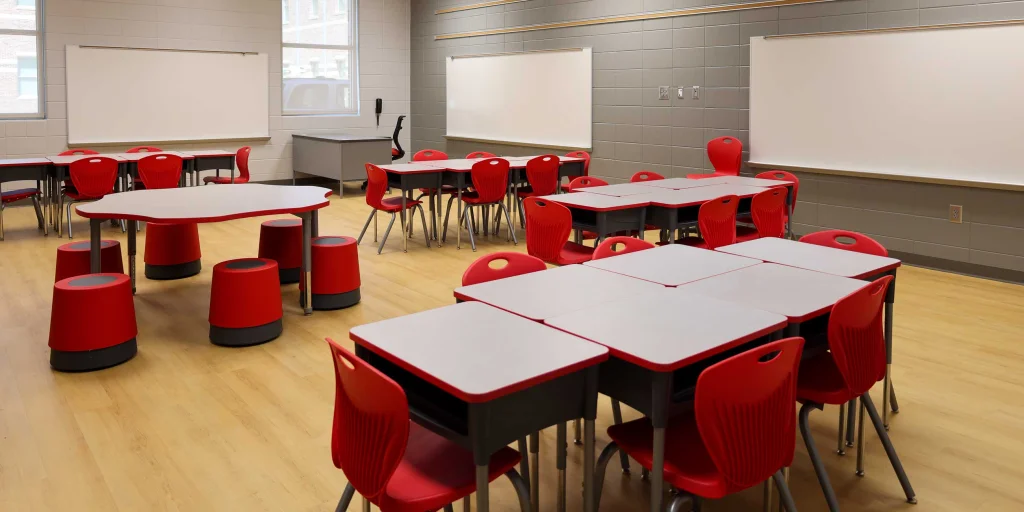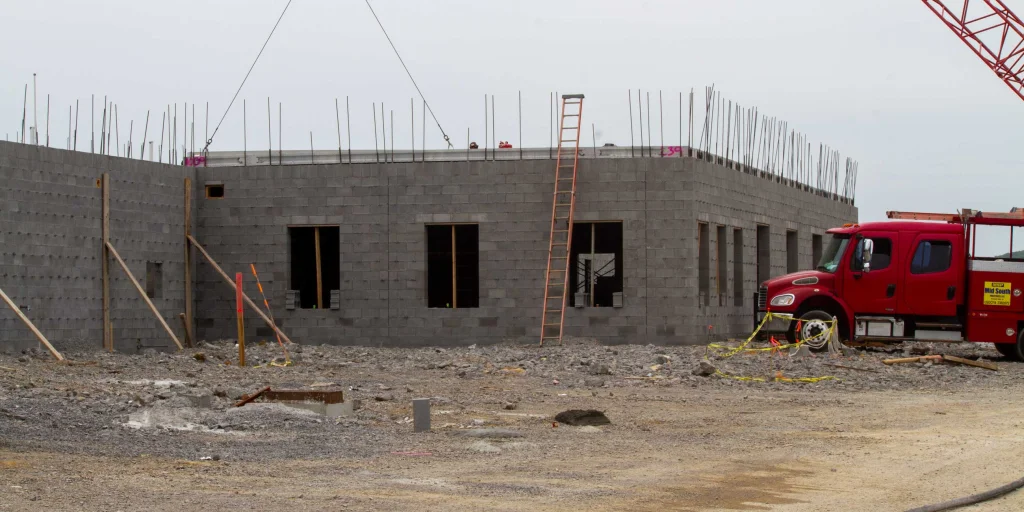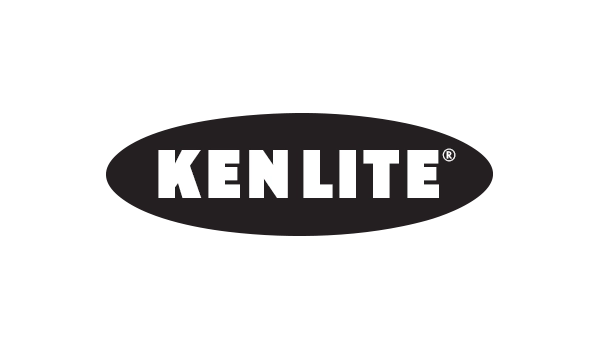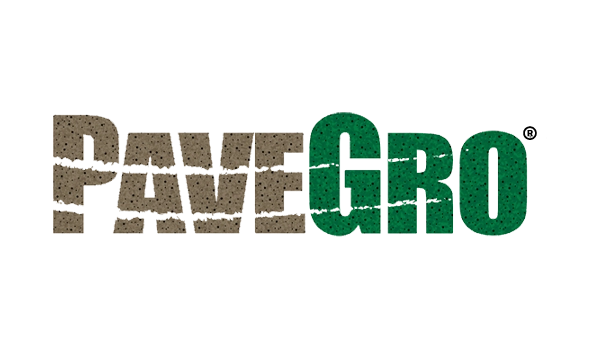Key Insights:
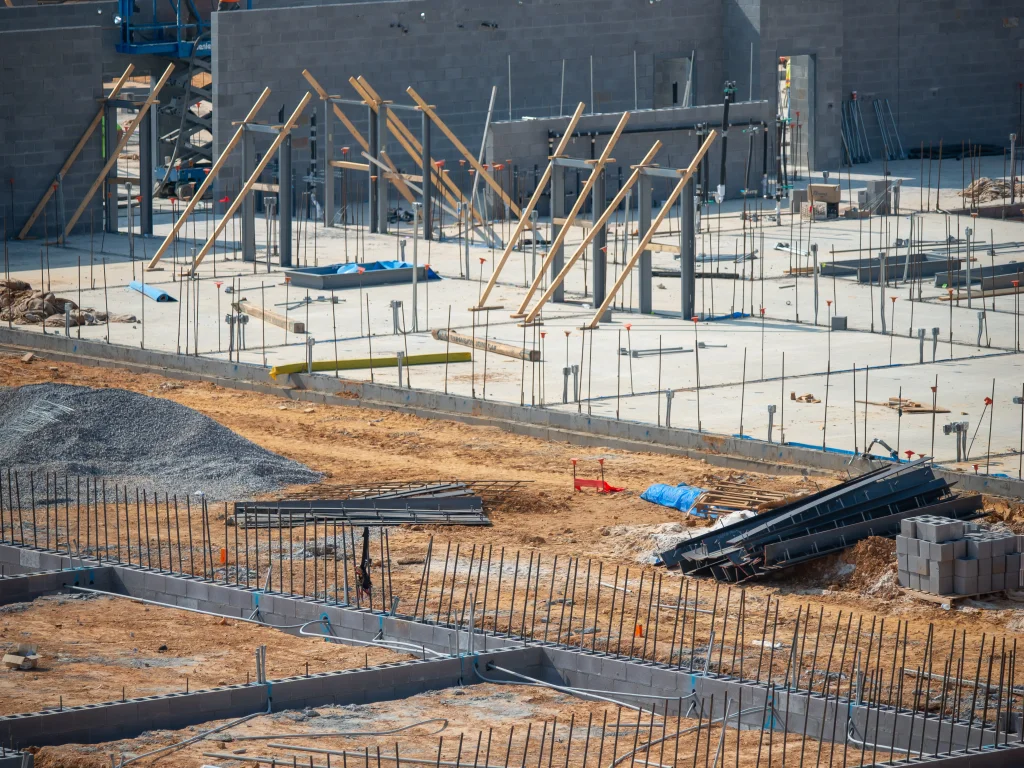
Quick Facts
- Name: Fort Payne Elementary School
- Location: Fort Payne, Alabama
- Customer: Kirkpatrick Concrete’s Guntersville, Alabama block division
- Client: Fort Payne City School District
- Size: 100,000 square feet, $19 million
Challenge: The Fort Payne Elementary School project needed a solution that would ensure fast installation and reduce labor costs. The school also needed a durable and fire-resistant material that could help the project stay within budget and meet local construction standards.
How Arcosa Helped- Our Solution: Arcosa supplied lightweight aggregate to Kirkpatrick Concrete’s Guntersville, Alabama block division for the production of lightweight concrete masonry units (CMUs). The lightweight aggregate was shipped from Arcosa’s Livingston, Alabama plant.
- Why Lightweight Works: Lightweight aggregate reduces the weight of CMUs, making them easier to handle, transport, and install. It increases mason productivity, lowers transportation costs, and results in a smoother, more uniform surface, ideal for both structural integrity and aesthetics.
Final Results
- The use of lightweight CMUs allowed for faster construction, reduced labor costs, and lowered delivery expenses. The project benefited from more efficient handling by masons and better overall productivity, resulting in a high-quality school built on time and within budget.
Key Quote
“Most masons prefer our lightweight block, which is 8x8x16 and weighs about 28 pounds compared to 30 pounds.” -Spencer Glassco, General Manager, Kirkpatrick Concrete North.
Context:
- Considerations: The Southeast U.S. has a long-standing preference for lightweight CMUs in the construction industry. This region relies on lightweight concrete for its cost-saving benefits, including reduced labor and transportation expenses, while maintaining high structural integrity and aesthetic quality.
- Lesson to Learn: Lightweight concrete masonry units (CMUs) can offer substantial savings in both labor and transportation, making them ideal for large-scale projects like schools. While the initial material costs may be higher, the overall cost savings in terms of efficiency and ease of installation make lightweight CMUs a better long-term investment.
Explore Further
Interested in how Arcosa’s lightweight aggregate can benefit your next project? Contact us today for a consultation.
Southeastern United States a Lightweight Concrete Masonry Market
When the city of Fort Payne, Alabama embarked on an initiative to bolster its educational facilities, they chose concrete masonry for a new $19 million elementary school. The 100,000-square-foot building is constructed using lightweight, grey concrete masonry units (CMUs) produced by Kirkpatrick Concrete’s Guntersville, Alabama block division.
“Guntersville Block has been a longtime customer, buying material from our Livingston, Alabama plant,” says Bill Wolfe, Arcosa Lightweight’s Marketing & Technical Manager. “They produce only lightweight block because masons in that market want lighter units for better productivity. It helps keep concrete masonry competitive in the marketplace.”
Masons in Northeast Alabama appreciate the weight reduction, says Spencer Glassco, General Manager of Kirkpatrick’s Northern Division. “We don’t make regular weight block and haven’t for years,” Glassco says. “Most masons prefer our lightweight block, which is 8x8x16 and weighs about 28 pounds compared to 30 pounds. You’d think two pounds wouldn’t make much difference, but if you lift several hundred a day, you know it wears on you.”
Glassco adds that while some of the block used for the school were custom-designed CMUs, most were their traditional 8-inch lightweight units. “Designers specified a custom block for a safe room, and we supplied a special 12-inch block for that application,” Glassco explains. “It required a slightly different mix design with more cement and variations in aggregate to achieve the exact strength they needed.”
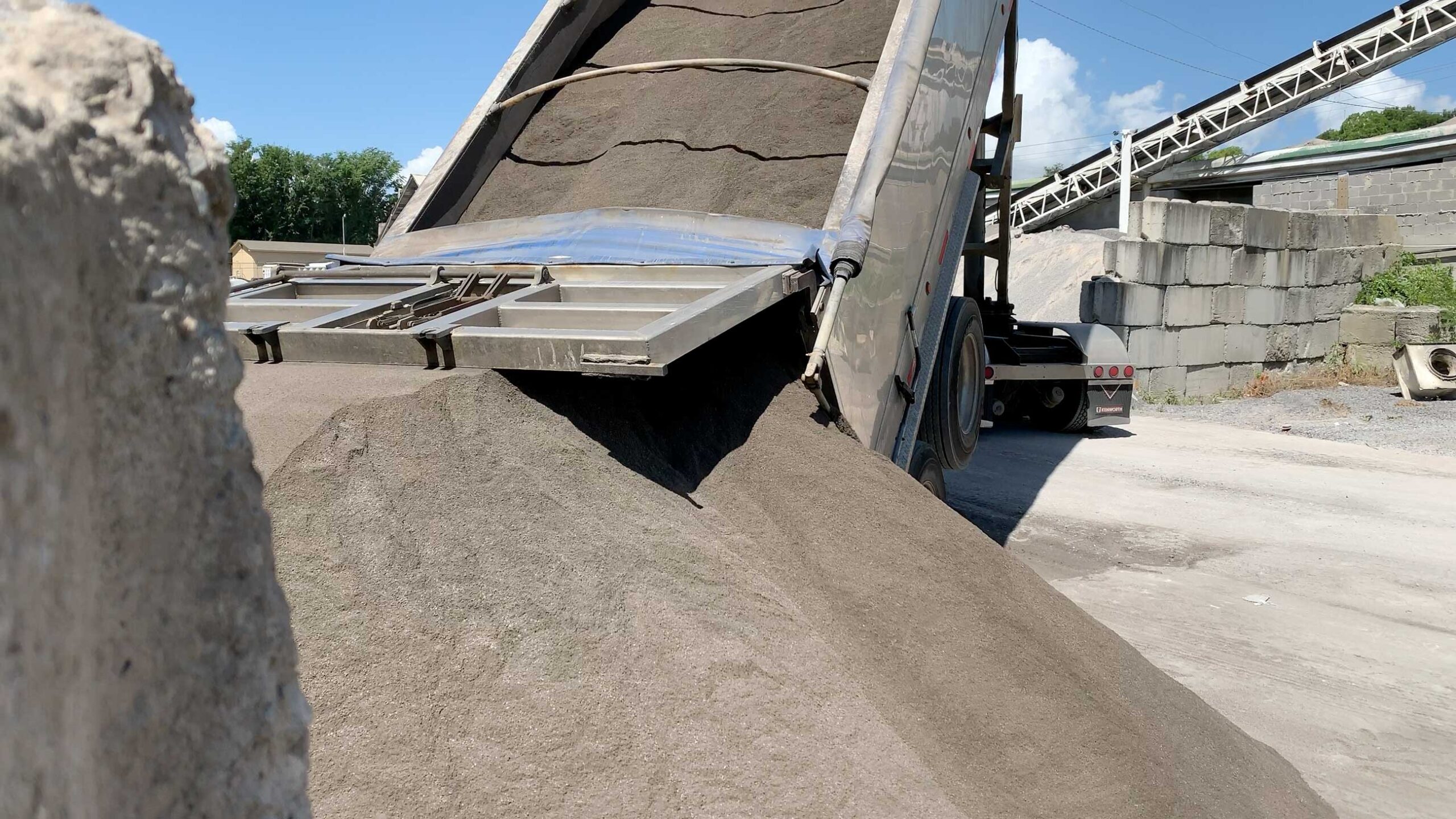
Better for Producers
The production of lightweight units is easier on employees and reduces wear on the manufacturer’s machinery, molds, and equipment. It also lowers transportation costs. “Trucks can haul more blocks when they’re lightweight, which reduces delivery costs,” Wolfe says. “It also reduces congestion at the project site because fewer truckloads are needed.”
Guntersville Block receives up to six shipments of lightweight aggregate per week, which they store alongside other aggregates and sands. “The customer receives the material just like their normal-weight materials,” Wolfe notes. “They handle the pre-wetting in the mixing process. They batch the lightweight aggregate with some of the mix water to get a pre-wet cycle, then proceed with their normal production process.”
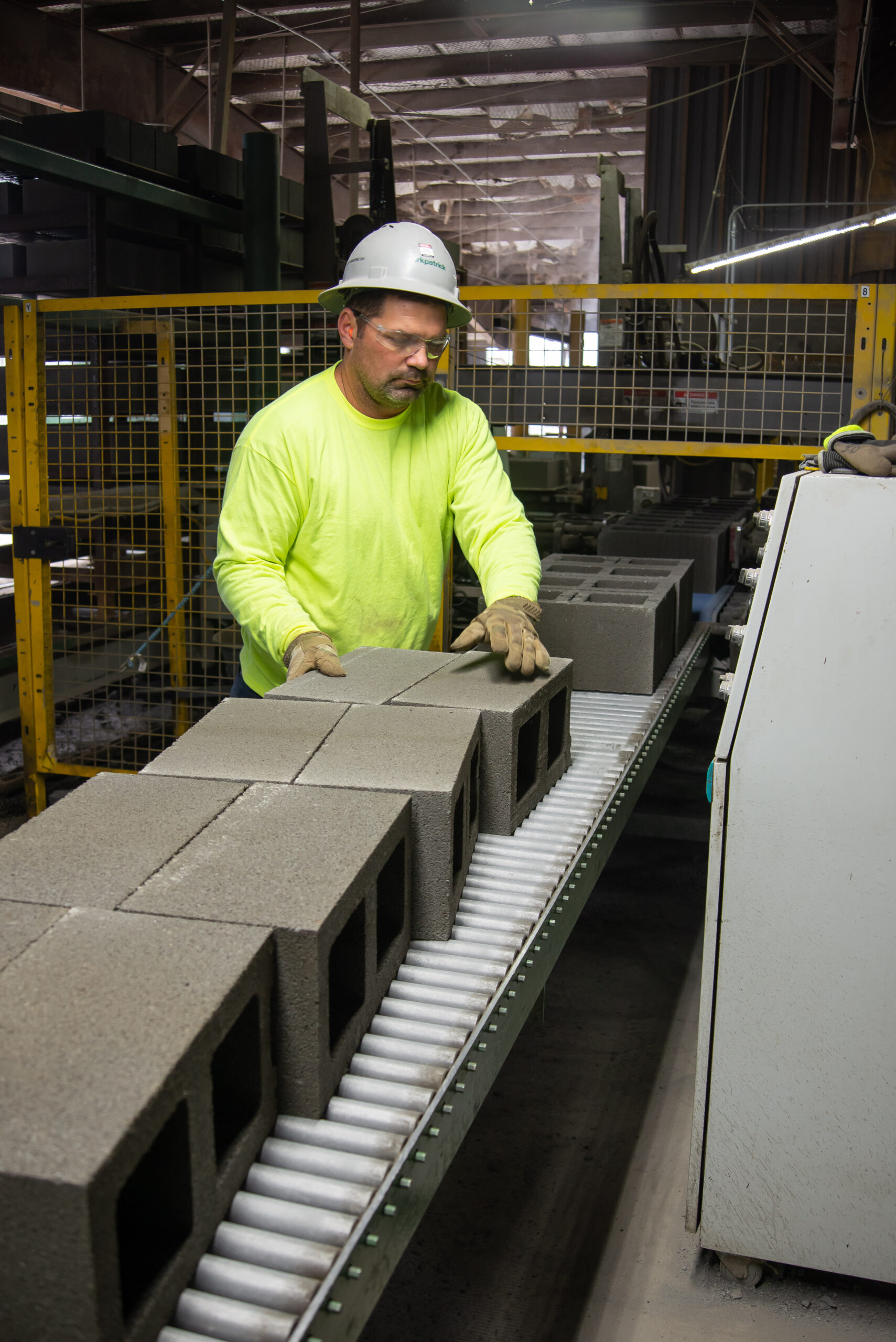
Understanding Full Benefits
Built for Strength
Concrete masonry also offers design flexibility, non-combustibility, and durability, making it a perfect choice for school projects. “A lot of times, you need a fire-rated corridor,” Wolfe says. “Concrete masonry won’t burn, and it’s easy to demonstrate its fire rating based on current building codes. It’s also very durable. It’s not easy to damage a concrete masonry wall like you can with other wall surfaces.”
A Sense of Pride
“Anytime you can help a community with a project like this that’s going to affect their children for years to come, it’s something we take pride in,” says Spencer Glassco. “We do the very best we can to service the project and make it work well for everyone.”







